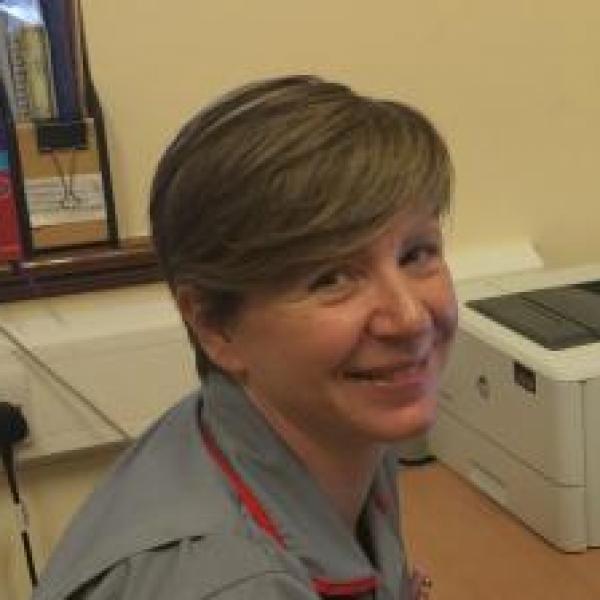
Cancer researcher Janice Richmond – ‘We wouldn’t have been able to respond to Covid as quickly if we hadn’t already thought our plan through’
When Advanced Nurse Practitioner Janice Richmond and her colleagues started off on the process of designing a project to move a certain group of cancer patients from the oncology day ward into a community-based primary care setting, they could never have imagined how necessary her research would prove in the pandemic era.
Conscious that patients on oral anti-cancer medicines can spend many hours on crowded day wards over the course of a year as they come in every month to renew prescriptions and for assessments, they set about devising a trial that could make their treatment less hospital-based.
The idea they struck upon was to take a trial group of patients off the day ward from their second or third cycle of treatment onwards, and follow them outside of that setting as they continue to self-administer their medicines at home.
Patients would be supported through telephone consultations following an initial face-to-face appointment at her office in Letterkenny University Hospital, and would periodically attend for physical examinations and assessments throughout their treatment.
The beauty of it was that my office was a clinical setting right at the front of the hospital, so patients wouldn’t even have to walk through it and they could come into me as much as they would need.
Working in partnership with Prof Andrew Murphy, Director of the Health Research Board (HRB) Primary Care Clinical Trials Network Ireland, and Dr Patrick Murphy the team successfully applied for the Cancer Nursing Research Award 2021 - an initiative aimed at stimulating nurse-led research and promoting partnerships between clinicians and academics which is funded by the Irish Cancer Society in collaboration with the HRB, the National Cancer Control Programme and the Office of the Nursing and Midwifery Serviced Director.
Urgent solution
With the project commencement date looming and all the planning in place, the trial would in fact go on to become an urgent service solution with the onset of the pandemic.
“I had planned to only take a small cohort of patients on oral anti-cancer medications out of the oncology day ward for the research, but when Covid-19 hit I was asked to take them all out and that’s what we did,” she recalls.
We were well along the road of how this research would work so we wouldn’t have been able to respond to Covid as quickly if we hadn’t already thought through the research plan. While it delayed our research in some respects it actually really showed the value of it.
'Stepping outside the box'
Richmond says initial feedback from patients involved in the model has been positive and that the support of the Society, made possible through funds raised from events including by Donegal Relay for Life, was invaluable even as the official project start date moved from April to September in the circumstances.
“I often think about stepping outside the box - not everything has to be done the way it always has been. Particularly with regard to oral medications, they can revolutionise our approach to cancer care yet day units are often still at capacity, patients still wait for a long time and in fairness this isn’t unique to Ireland, so the challenge is trying to think if there’s a better way of doing this.
“Research helps us step back and ask the big questions: what are we doing and for what benefit? Having the research award gives you time to stand back, analyse and think about how we can make services better.
“The Irish Cancer Society were very supportive and have worked with us on the unprecedented delays, so our funding is secure and there were no negatives from the situation.
“With my clinical nurse manager colleagues Mary Grace Kelly and Alison Johnston along with all the rest of the team members we’re now moving on at pace with the research and we’re still hopeful that we’ll come in around the timeline initially laid out for it.”
The work of Irish Cancer Society funded researchers is made possible through the kind support of the public.
To help support our cancer research please visit www.Cancer.ie/Donate
Contact the Irish Cancer Society Support Line
If you have worries or concerns about cancer, you can speak confidentially to an Irish Cancer Society Cancer Nurse through the Freephone Support Line on 1800 200 700.
Monday to Friday, 9.00am - 5.00pm

For more information
Phone
1800 200 700
